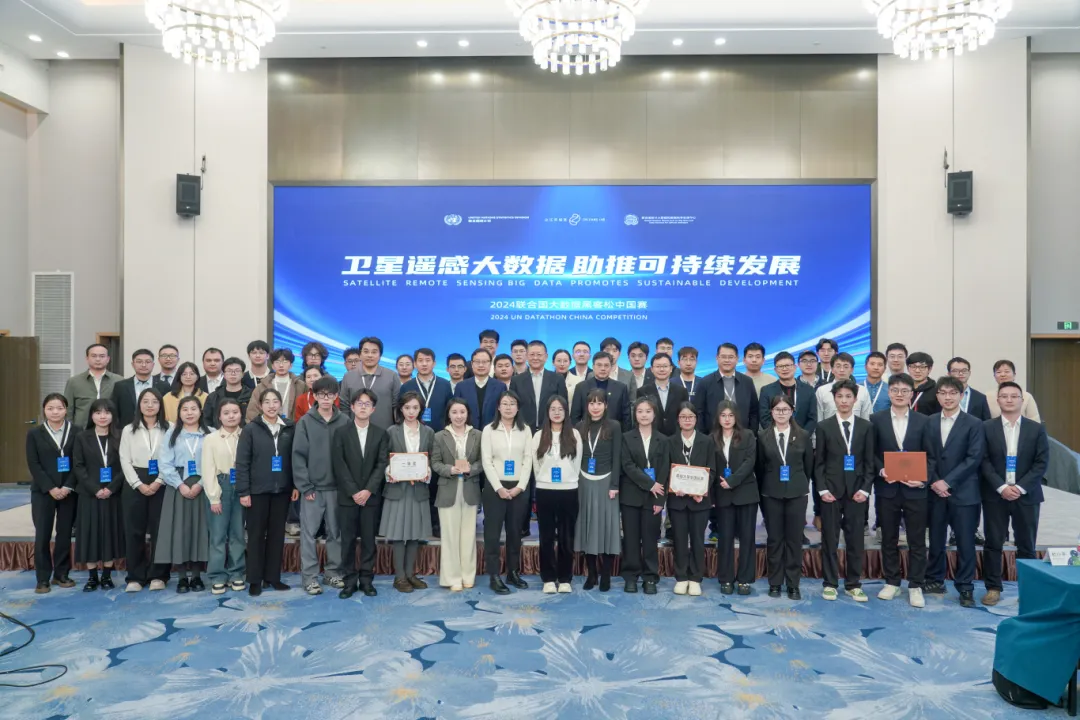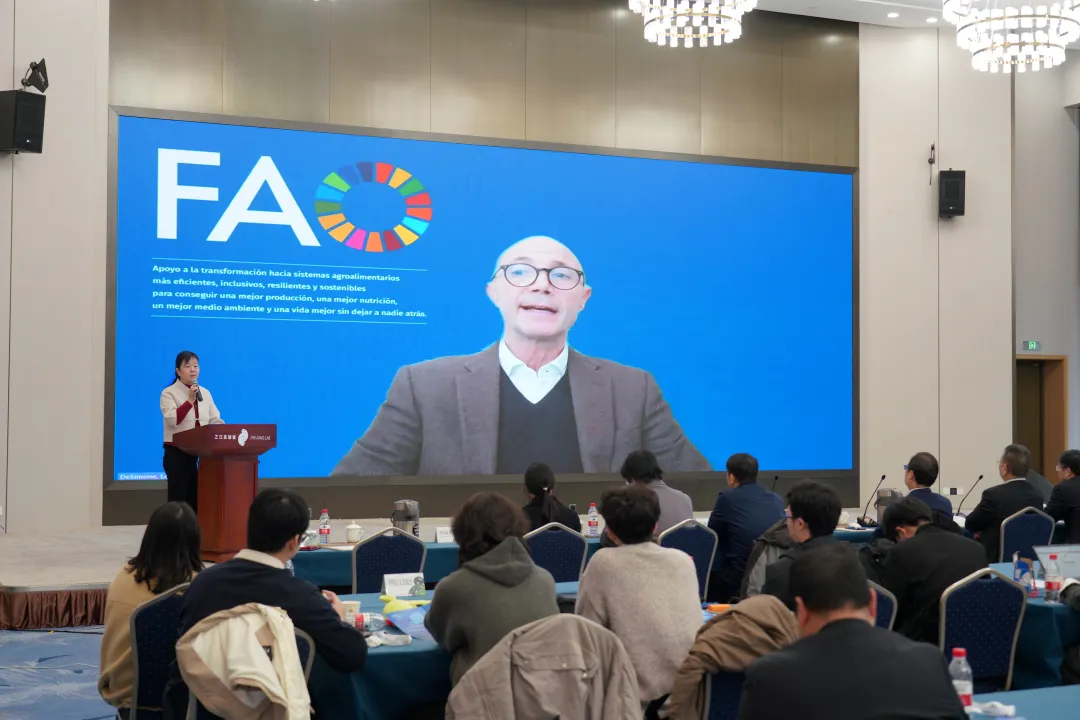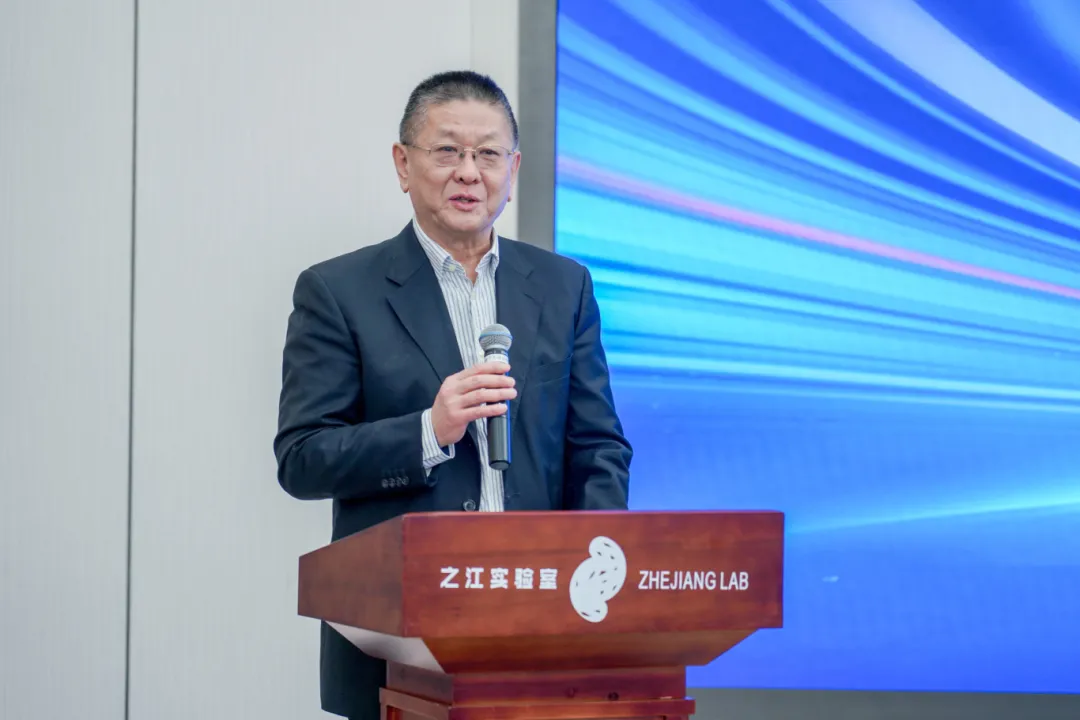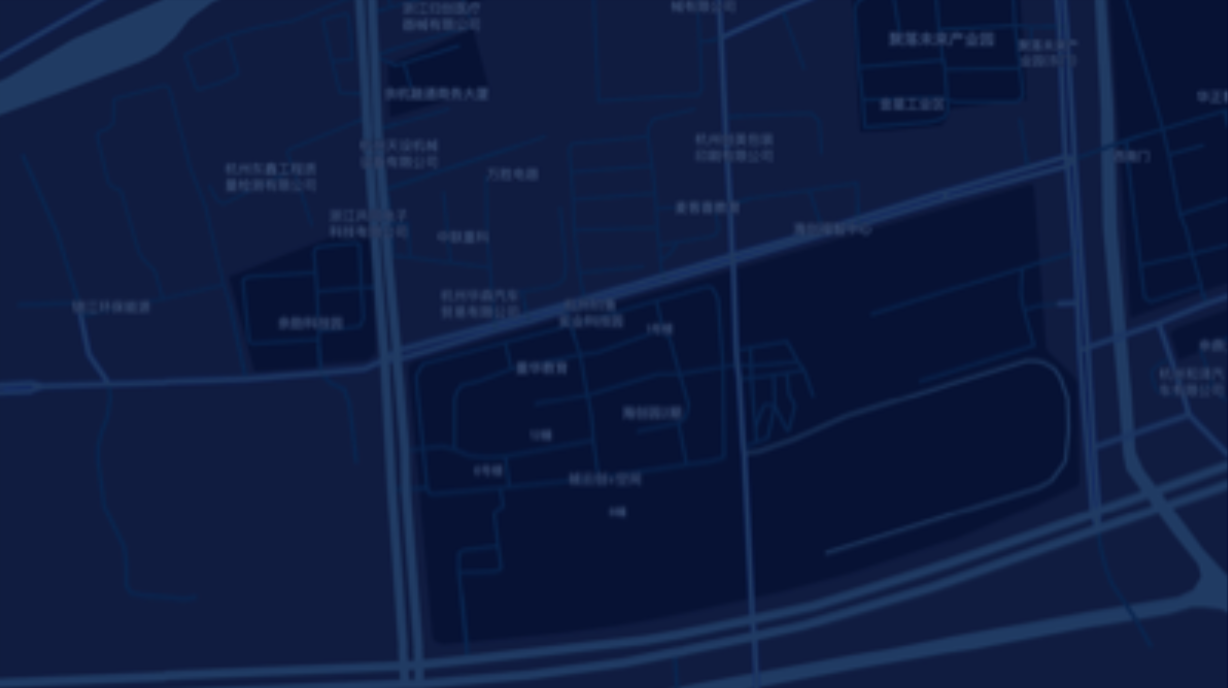

On December 12, the final and closing ceremony of the 2024 UN Big Data Hackathon China Competition (China Competition in brief), jointly organized by United Nations Global Center for Big Data and Data Science(UNBDC), and Zhejiang Lab (ZJ Lab), concluded at ZJ Lab. Lorenzo De Simone, an expert from the Group on Earth Observations, delivered an online address. ZHANG Bin, Director-General of the Survey Office of the National Bureau of Statistics in Zhejiang and Chinese Head of the Global Hub, and YUAN Jixin, Vice President of ZJ Lab, attended the event.

Lorenzo De Simone congratulated the 12 finalist teams and extended his gratitude to the UNBDC and ZJ Lab. He pointed out that the second China Competition focuses on contemporary development with its goal to provide innovative solutions for global sustainable development challenges. The participants' efforts in remote sensing technology has demonstrated the creativity of Chinese researchers, and the results of the competition will have a lasting impact on the future development of relevant fields. He also indicated that current data applications face a series of new challenges and hoped that Chinese researchers will maintain innovative dynamism and make greater contributions to achieve the United Nations' 2030 Sustainable Development Goals.

This year's China Competition, themed "Satellite Remote Sensing Big Data Promotes Sustainable Development", attracted over 50 teams from renowned universities and leading institutions, including Peking University, Renmin University of China, the Chinese University of Hong Kong, and Nanhu Laboratory. The projects covered a wide array of critical fields, such as food security, disaster prevention, urban governance, and environmental monitoring, showcasing substantial practical significance and application potential.
For the final stage, experts from academic institutions including the China Society of Economic Reform, Zhejiang University, Fudan University, Beijing Normal University, Zhejiang Gongshang University, and Hangzhou Dianzi University were invited to join the judging panel. After intense competition, the "Zijin Funong" team's project, "Moderate Agricultural Scale and Potential for Grain Yield Increase - ECR Model Based on Farmland Scale Measurement", won the first prize. The second prizes were awarded to two projects: "Satellite Sea Surface Temperature Super-Resolution Processing Based on Diffusion Model" by the "Haibiao Wendu Chaofen" team, and "Real-time Monitoring and Instant Analysis of Atmospheric and Surface Anomalies" by the "Muduo Xingsheng" team. Additionally, three third prizes were awarded, along with six special awards, including Best Visualization, Best Presentation, Best Student Team, Best Creativity, Most Promising, and Best Practice.

The UN Big Data Hackathon aims to bring together global talents in data science and statistics to develop innovative solutions for advancing the United Nations 2030 Agenda for Sustainable Development through methods such as model algorithm development and big data analysis.












